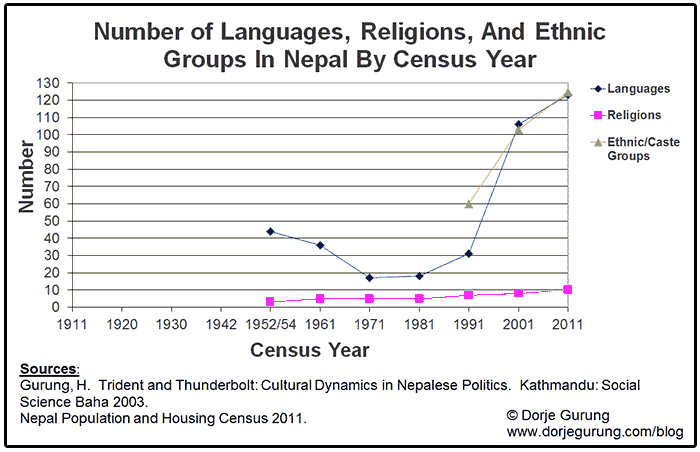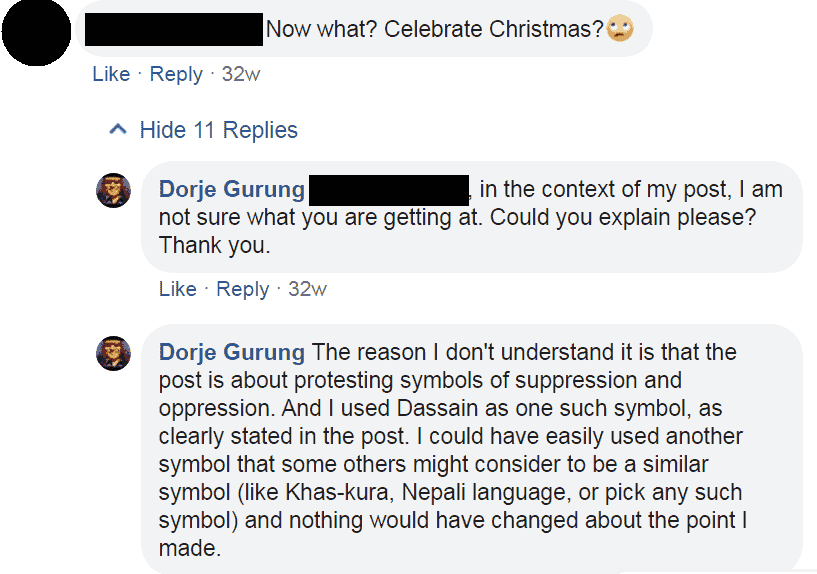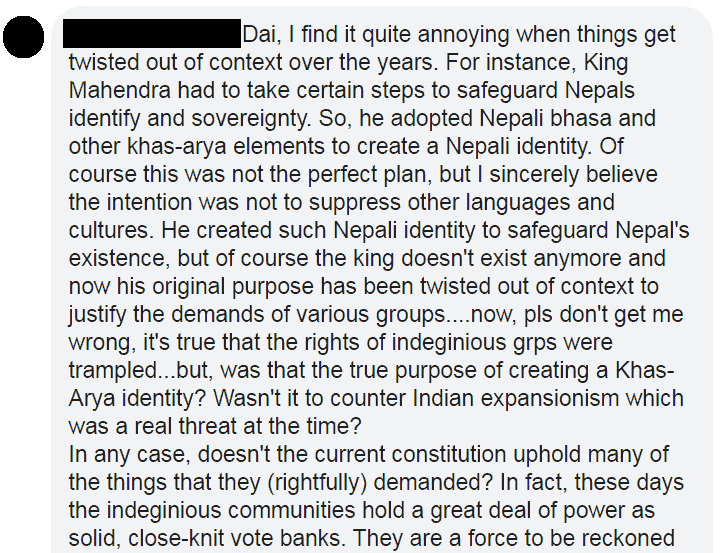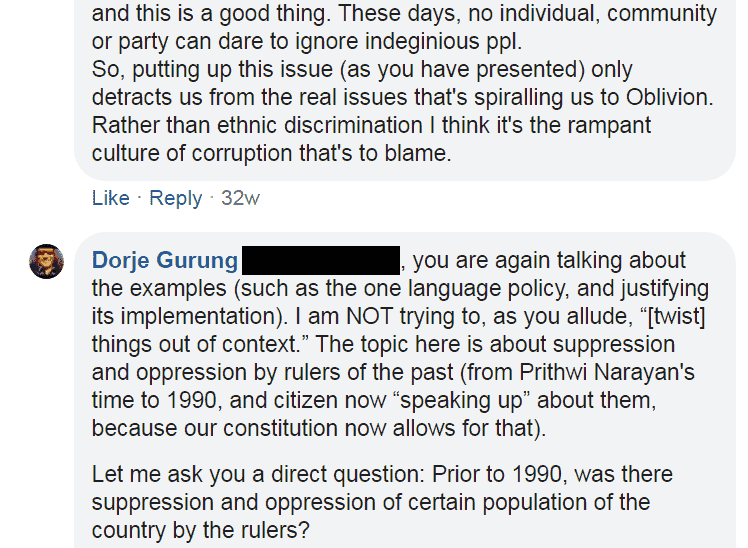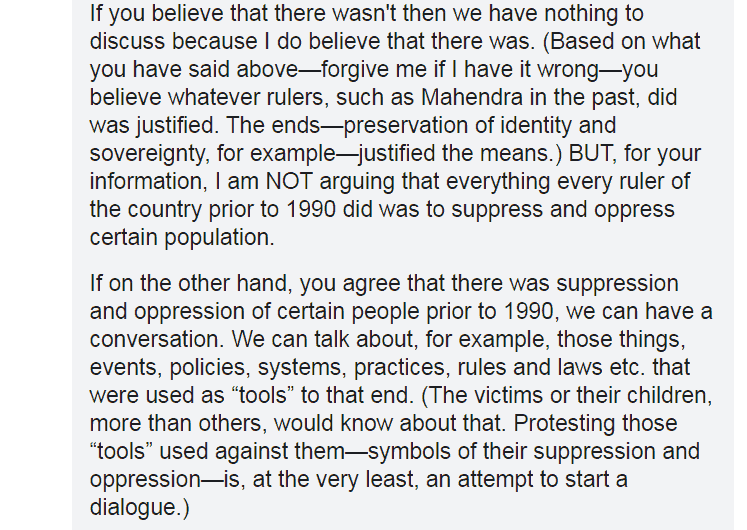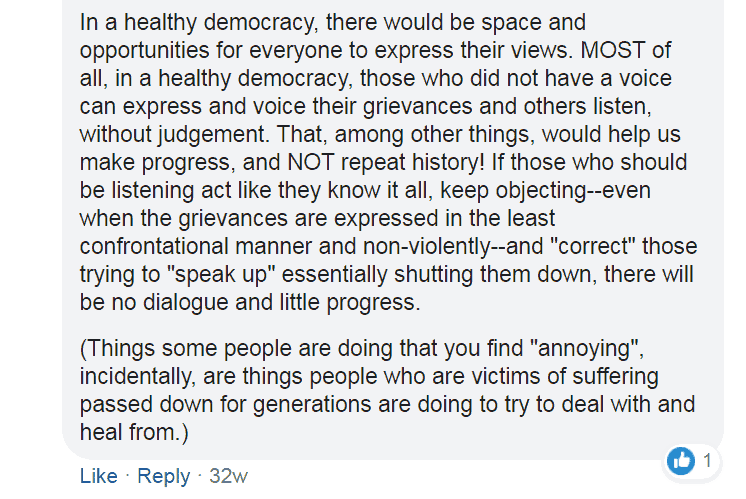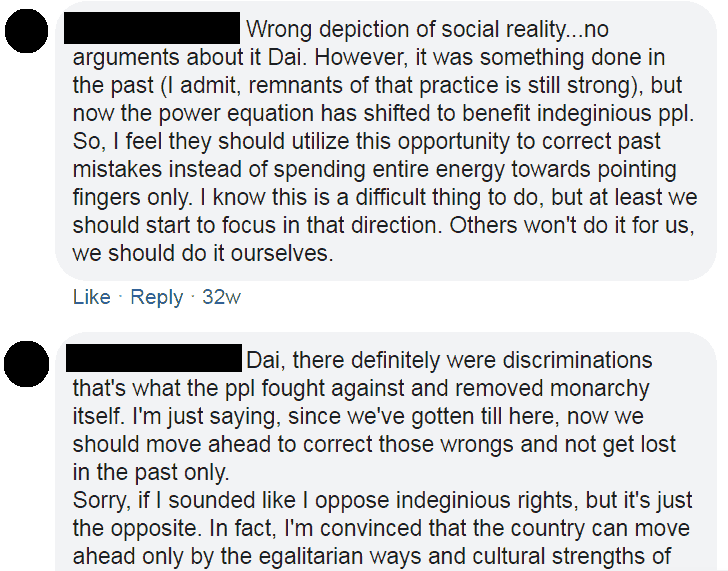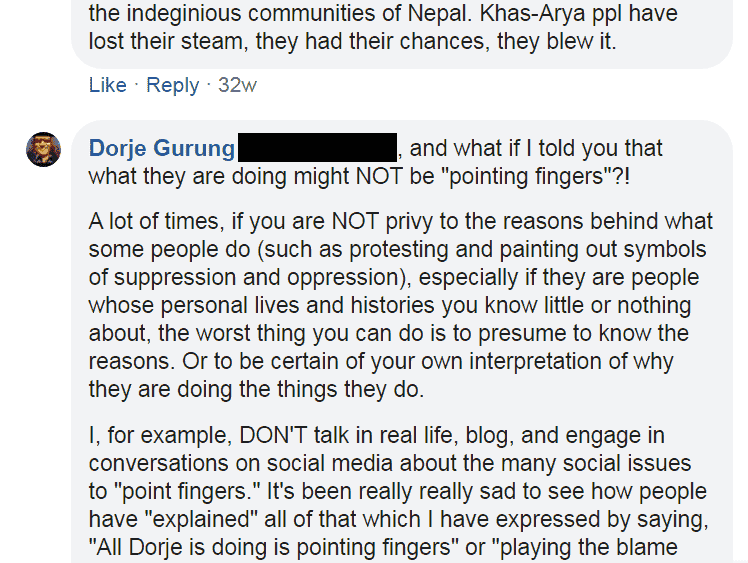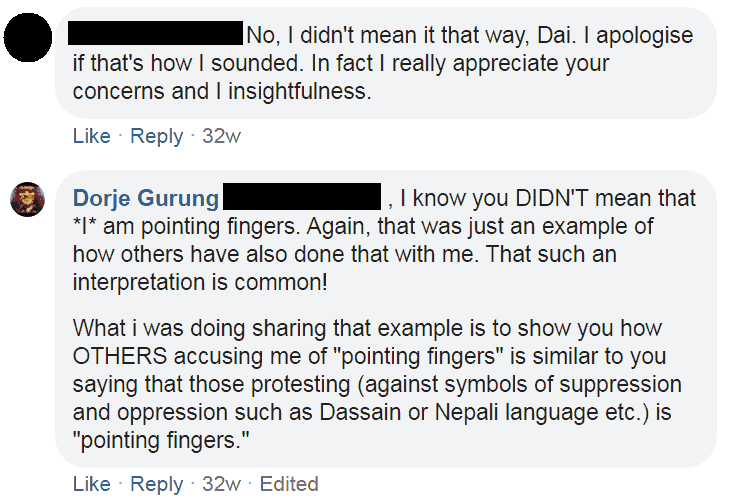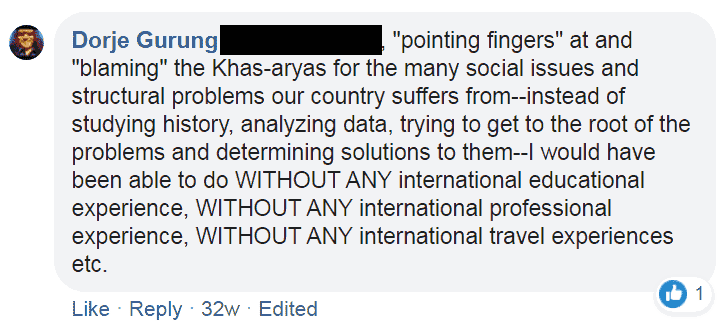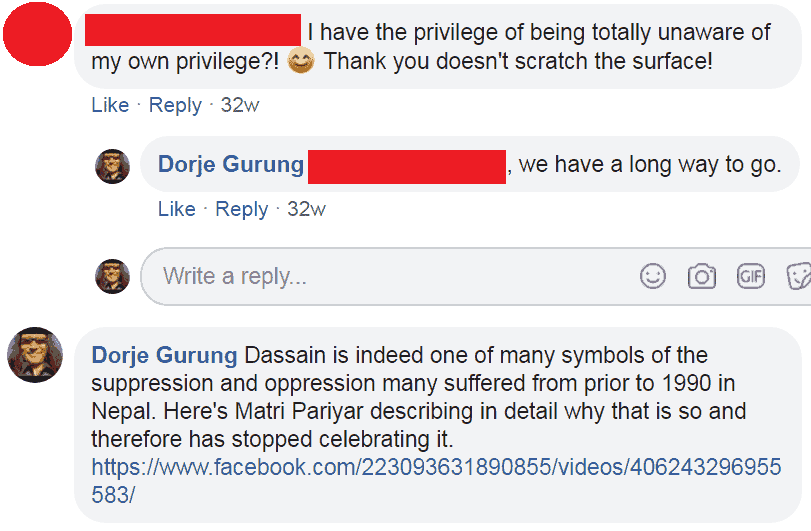Among other things, products of poor quality of education misinterpret information and make flawed arguments etc., a subject of a number of blogs of mine. This one is yet another one of them.
Last Fall, during Dassain, the biggest Hindu Festival, while many were greeting one another and wishing one another well etc. on social media, on Facebook, I came across posts showing images of protests against the festival. After seeing users on the platform expressing their hurt sentiments in reaction to such posts, I myself made the following post.
If Nepalis Protesting Against Dassain Hurt Your Sentiments…
When a suppressed and oppressed people, for pretty much the entire history of the country, get the freedom to express, freely, their opinions and feelings, one of the many things they do, not surprisingly, is to “attack” the symbols of that suffering. Dassain, for some, for example, is one such “symbol” of generation upon generations of—sometimes violent—suppression of their religion, culture, or language etc. (see image) and oppression of their people.
But then again, if you don’t belong to an oppressed group, you might not know anything or know very little about that history of your country. After all, our education in #Nepal—both formal and informal—don’t really teach people about that. So, to know about that, you would have to have experienced it or learned about it from other sources.
If their “attack” of symbols (such as Dassain), hurt your sentiments, take a step back and try to imagine how YOU would have given vent to that suffering in a non-destructive, non-violent manner to draw others’ attention to it and to potentially educate others about it.
I accompanied the post with this chart.
The chart was actually a re-share of an old post so it came with the following text underneath it.
The number of languages spoken in the country, the number of religions practiced by the population of the country, and the number of ethnic/caste group in the country by census report.
There is no data for languages and religions before the 1952/54 census report–when the country was ruled by the hereditary Rana oligarchs–because either they were not collected or, if they were, they were never made public. No data for the number of ethnic/caste groups prior to the 1991 census report because that was the first time it was reported on! #Nepal
What does the absence of data say about our rulers of old? What does the pattern in changes over time say about them? How different are our current crop of leaders who run the country?
The post elicited a response from a fellow Nepali, a school mate. He commented saying “Now what? Celebrate Christmas?” indicating how he had totally missed the point of my post. In my response to him, I indirectly pointed that out to him.
His responses, however, revealed that he hadn’t still gotten the point of my post. He went on the defensive. So I tried to get a sense for his opinion on the topic by asking him a direct question.
And I tried to draw his attention to the chart.
To which he responded by really mostly justifying it and by going on the offensive. He described what the protesters should be doing instead, as opposed to “pointing fingers”. I retorted by telling him that the point might not be to “point fingers.”
Following that, he apologized saying he “didn’t mean it that way.” I suspect he interpreted my personal example as an accusation–that he was also accusing me of “pointing fingers.”
He didn’t respond to that and the exchange ended there. Another friend however chimed in saying the following.
I posted the above video not long after on my timeline. Here’s what I prefaced it with:
Dassain is indeed one of many symbols of the #suppression and #oppression many suffered from prior to 1990 in #Nepal. If you don’t know, watch Mitra Pariyar [a Dalit] describe in detail why that was so for him and his people in Gorkha and therefore has stopped celebrating it. #Nepal
And here’s the video:
Misunderstanding or mis-interpreting indigenous population’s actions and voices is but only one of the many issues. Another issue with trying to have to these discourses with hill so-called high caste Hindus (of which he is one) is their reluctance to listen (because they are convinced they know better?). If they do listen and then respond, they have a tendency to go on the defensive (explaining why their ancestors did what they did, for example, or by asking “Why are trying to make us feel guilty for our birth as a high caste?!”) or to go on the offensive (saying “Why are you ‘pointing fingers’ at or ‘blaming’ us for what our ancestors did?” or “Why are you trying to incite hatred for the high castes?” etc.) or to dictate and set the agenda for the discussion (saying “This is NOT as important an issue as this other issue” etc.).
So, not long after the above exchange, I shared the following, reiterating two points I had made in it.
And those for whom your culture was directly or indirectly a history of the others’ oppression AND suppression (of aspects of their culture), AND now, because the political climate allows for the others’ freedom to speak up and protest those symbols of oppression and suppression, the least you—as member of the dominant culture—can do is to “listen.” Only then will you learn and can WE move forward, make progress.
If, however, you butt in and redirect saying how we should INSTEAD be focusing on something else entirely, you are using your privilege, AGAIN, as those that preceded you did to silence and…suppress and oppress.
Not long ago, in a tweet, I wondered when, in Nepal, those enjoying structural privilege will be so accommodating that others (i.e. non-high-castes) are able to exercise their RIGHT to own the narrative of their own situation and the privileged understand and validate them.
What’s preventing them? A belief that they know better? They are after all, on average, considerably more educated and therefore may be convinced that they should be able to dictate the narratives of everyone else, for the benefit of everyone. They, as a people, have been able to do that through the entire modern history of the country. Plus, privilege does blind some people.
On a personal note, my family celebrated Dassain when I was growing up only because my parents didn’t want us to feel left out and be mocked by others. To the ethnic Tibetan Buddhists that we are, Dassain really means nothing, and still doesn’t. And so I don’t celebrate it. As matter of fact, when it comes to celebration of religious holidays, I have probably celebrated Christmas more than any other, mainly because I spent so much time abroad in the company of those who celebrated it over all others!
Anyway, if, as a high caste, your sentiments were hurt by protests against your biggest festival– something relatively recent–I would like to invite you to reflect on how much and how long the sentiments of others and their ancestors must have been hurt by the suppression and oppression of their festivals, to say nothing of the rest.
What do you think?

